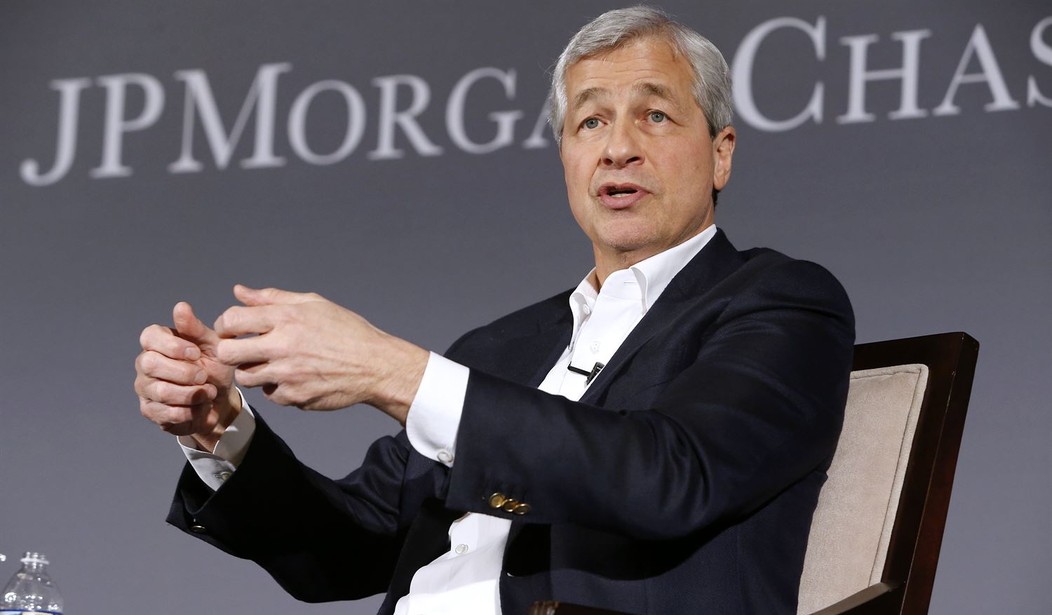One of the biggest lenders in the country has now been shut out of Louisiana’s municipal bond market because of its policies and practices related to the firearms industry. JPMorgan officially lost out on a $700-million deal on Thursday when the Louisiana Bond Commission voted to replace the banking giant with Wells Fargo, a couple of weeks after the commission had asked JPMorgan CEO Jamie Dimon to explain his company’s position on doing business with the firearms industry.
The decision came after state Treasurer John Schroder, a Republican, said his team was scrutinizing JPMorgan’s gun policies following Chief Executive Officer Jamie Dimon’s comments to a Congressional committee earlier this year that his firm won’t finance companies that make military-style weapons for consumers.
“I’m not selling our Second Amendment rights to corporate America,” Schroder, the panel’s chair, said at the meeting in Baton Rouge.
In 2019, Louisiana began asking banks whether they have policies that infringe on citizens’ rights to bear arms as part of the firms’ application to underwrite bond deals. At the time, JPMorgan said it didn’t.
But in advance of this bond sale, Schroder said his office asked banks in the underwriting pool whether they finance the manufacture of certain weapons for civilian use.
JPMorgan didn’t submit an answer to that query, and that lack of response led to their disqualification from underwriting the sale, Schroder said. A JPMorgan spokesperson didn’t have an immediate comment after the vote Thursday. Allison Chin-Leong, a spokesperson for Wells Fargo, declined to comment.
Losing that $700-million deal isn’t going to put JPMorgan in the red, but Louisiana isn’t the only state that’s cracking down on doing business with anti-gun financial institutions that discriminate against the firearms industry. The Texas legislature passed a law earlier this year that also shuts anti-gun banks out of the municipal bond market, which has led to a number of companies (including JPMorgan) to miss out on hundreds of millions of dollars in deals.
There are signs that the crackdown is having an effect on the financial sector. Just a few days ago one of the big players in the bond market asked permission to be let back in.
Citigroup, one of the largest underwriters in Texas, has declared it is ready to resume business in the state under a law designed to protect the firearms industry and its advocates.
In a letter to the state attorney general, Daniel Tomson and Paul Creedon, co-heads of public finance for Citi, assert that their firm does not discriminate against any firm involved in making or selling firearms or any associations or nonprofits related to the industry.
After declaring that its in compliance with the Texas law, on Wednesday Citigroup won its first bond bid in the state since the new law went into effect.
The bank won an auction for a $27 million bond offering sold by the Alamo Heights Independent School District, data compiled by Bloomberg show. It stands to be the firm’s first muni deal in Texas since late August. The pause in underwriting there came after the law went into effect on Sept. 1, barring governments in the state from working with companies that “discriminate” against firearm businesses or trade groups.
Before the deal becomes final, Citigroup needs the office of the state’s attorney general, Republican Ken Paxton, to sign off on the transaction, a step required on public debt sales in Texas. The office didn’t respond to an email and phone call requesting comment.
Hopefully Citigroup really has changed its policies and practices and isn’t just trying to pull a fast one on Texas officials. I’m glad that the state’s AG is going to have to give final approval for the transaction, and I expect that Paxton’s office will do its due diligence before giving the green light.
If Citigroup is willing to change its ways, maybe other big banks will follow suit. With other red states likely to impose their own restrictions on anti-gun financial institutions in the coming months, that would definitely be the wise move to make. Otherwise, have fun explaining to investors why anti-gun virtue signaling is more important than the bank’s bottom line.









Join the conversation as a VIP Member